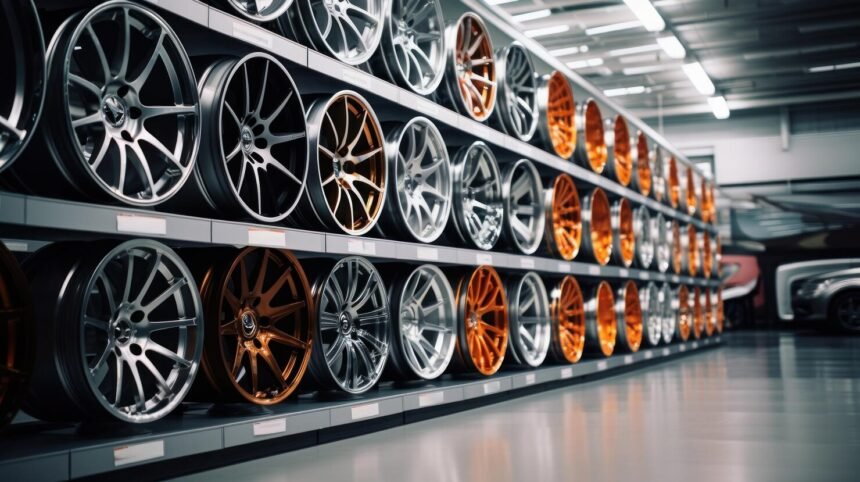Alloy wheels have revolutionized the automotive industry, offering a blend of style, performance, and functionality that has made them a popular choice among car enthusiasts worldwide. These wheels are constructed from a mixture of aluminum and other metals, providing a host of advantages over traditional steel wheels. From improved aesthetics to enhanced performance, alloy wheels have become a symbol of sophistication and innovation in the automotive world.
Evolution of Alloy Wheels
The concept of alloy wheels dates back to the mid-20th century when manufacturers began exploring alternative materials to steel for wheel construction. Aluminum alloys were found to be a lightweight yet durable option, offering better heat conduction and corrosion resistance compared to steel. This led to the development of alloy wheels that soon gained popularity for their superior performance characteristics.
Advantages of Alloy Wheels
1. Lightweight Construction
One of the key benefits of alloy wheels is their lightweight construction. The use of aluminum alloys makes them significantly lighter than traditional steel wheels. This reduction in weight results in improved fuel efficiency, better handling, and enhanced acceleration and braking performance.
2. Aesthetics
Alloy wheels are synonymous with style and elegance. They come in a wide range of designs, finishes, and sizes, allowing car owners to customize their vehicles to reflect their personal taste. Whether it’s a sleek, modern look or a sporty, aggressive design, alloy wheels can enhance the overall appearance of any vehicle.
3. Heat Dissipation
Aluminum is an excellent conductor of heat, which means alloy wheels can dissipate heat more effectively than steel wheels. This property helps prevent overheating of the brakes and tires during high-speed driving, improving overall safety and performance.
4. Corrosion Resistance
Alloy wheels are more resistant to corrosion than steel wheels, thanks to the protective oxide layer that forms on the surface of the aluminum alloys. This makes them ideal for use in diverse weather conditions and helps maintain their appearance over time.
Types of Alloy Wheels
1. Monoblock Wheels
Monoblock wheels are crafted from a single block of aluminum alloy, making them lightweight and strong. These wheels are often used in high-performance vehicles due to their superior strength-to-weight ratio.
2. Multi-piece Wheels
Multi-piece wheels consist of separate components that are bolted together. This design allows for greater customization options in terms of width, offset, and finish. Multi-piece wheels are popular in the aftermarket tuning scene.
3. Forged Wheels
Forged wheels are manufactured by applying high pressure to a solid piece of billet aluminum. This process results in a wheel that is extremely strong and lightweight, making it a preferred choice for racing and performance-oriented vehicles.
Maintenance and Care
To ensure the longevity and performance of alloy wheels, proper maintenance is essential. Regular cleaning with a mild detergent and water can help remove dirt, brake dust, and other contaminants that can damage the finish. Additionally, applying a protective sealant can help prevent corrosion and maintain the wheels’ shine.
Conclusion
Alloy wheels have become a symbol of innovation and style in the automotive industry, offering a host of advantages over traditional steel wheels. From improved performance to enhanced aesthetics, these wheels have captured the hearts of car enthusiasts around the world. As technology continues to advance, we can expect further developments in alloy wheel design and construction, pushing the boundaries of what is possible in terms of style, performance, and functionality.











